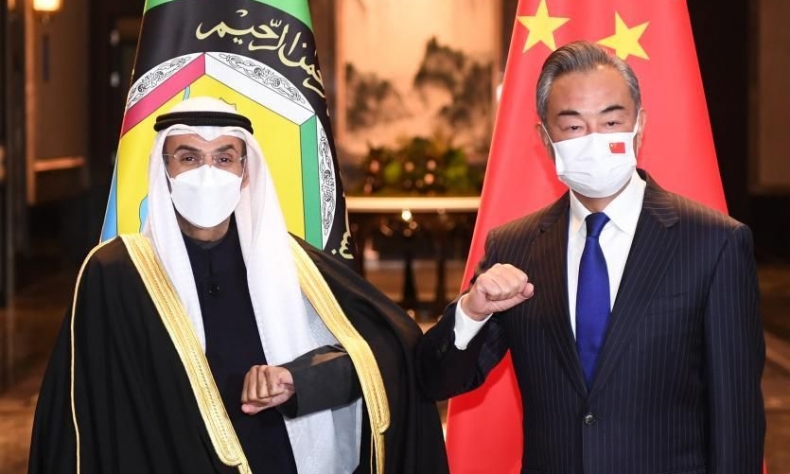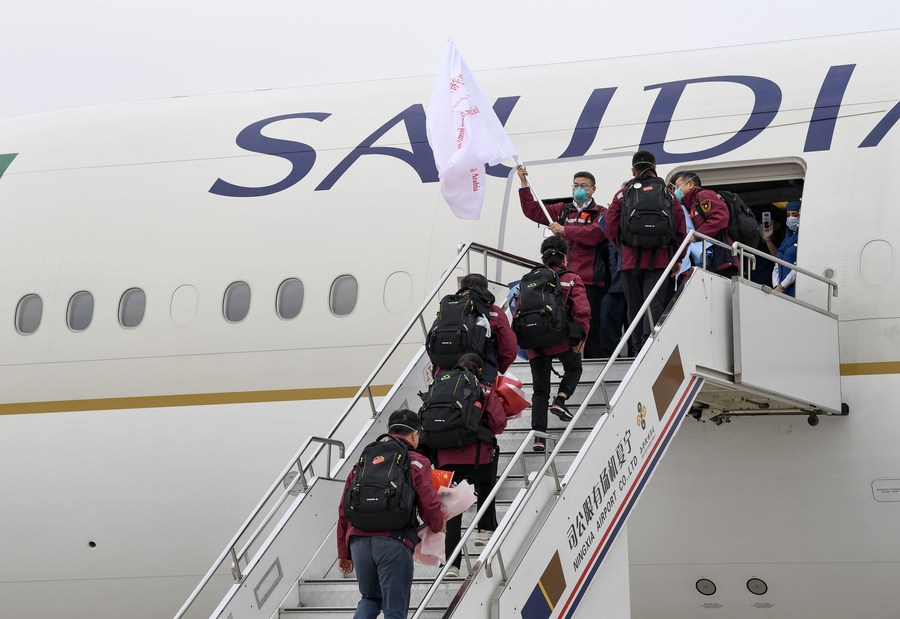A Better Way Forward for the Middle East

For both parties, it is about facilitating a future path to sustained growth, establishing a partnership that transcends culture, religion, and ideology alike, and one which moves them away from the ‘oil for security’ paradigm.
Last week, the foreign ministers of Saudi Arabia, Bahrain, Oman and Kuwait, along with the General Secretary of the Gulf Cooperation Council (GCC), met with Chinese Foreign Minister Wang Yi. The meetings proved productive, and the group agreed to advance talks on a multilateral free trade agreement, as well as to work towards the establishment of a comprehensive strategic partnership, marking considerable progress in ties that are already warm.
Recently, China has increased its engagement with countries in the Middle East. On Jan. 12, it invited Syria to join the Belt and Road Initiative. It is a region with many political divisions, ideologies, and, in turn, conflicts. But it is also a region that is critical to the world economy. This has secured growing common interests between China and the various countries of the region, but it is now time to build on this to find a new way and a better way forward.
One of the most appealing aspects of China’s role in the Middle East is that it maintains a position of non-interference in the internal affairs of other countries. For a region that has suffered from over a century of foreign-led intervention, regime change, and meddling, this is a very attractive proposition for all involved. China is able to forge relationships with these countries without seeking to impose its ideological or hegemonic vision on the region, which has been a longstanding theme of British, American, and French foreign policy since the early 20th century. China proposes instead that peace, stability, and dialogue be the fundamental principles of Middle East diplomacy with the view to attain mutual prosperity. This draws a contrast to America’s move to outright invade countries, sponsor insurrection, and create proxy wars, which have resulted in humanitarian catastrophes and massive refugee outflows, promulgating in instability back in the West.

As the world’s largest exporters of crude oil and petroleum products, the Gulf States have come to recognize China as their largest export market, given that its own economic development requires an ever-growing need for energy consumption. Saudi Arabia alone exported over $45 billion of goods to China in 2019, more than any other country. In addition, ties with China also play an important role in terms of the Middle East seeking to diversify its reliance on energy exports as the world moves faster towards renewables. Thus, China’s enormous market and the opportunity to engage in other areas of trade becomes increasingly important.
In this case, the emerging strategic partnership between China and the Gulf is not military- or alliance-based, but a developmental one. The Gulf States are all part of the Belt and Road Initiative and have seen the importance of facilitating their own investments within its projects, as well as in nearby areas of interest such as Pakistan and the China-Pakistan Economic Corridor.
For both parties, it is about facilitating a future path to sustained growth, establishing a partnership that transcends culture, religion, and ideology alike, and one which moves them away from the “oil for security” paradigm. Given this, China is proposing a new way for the Middle East, rejecting the disastrous formula applied to it for over a century, which has ruined countless lives and destroyed nations.
 Facebook
Facebook
 Twitter
Twitter
 Linkedin
Linkedin
 Google +
Google +







